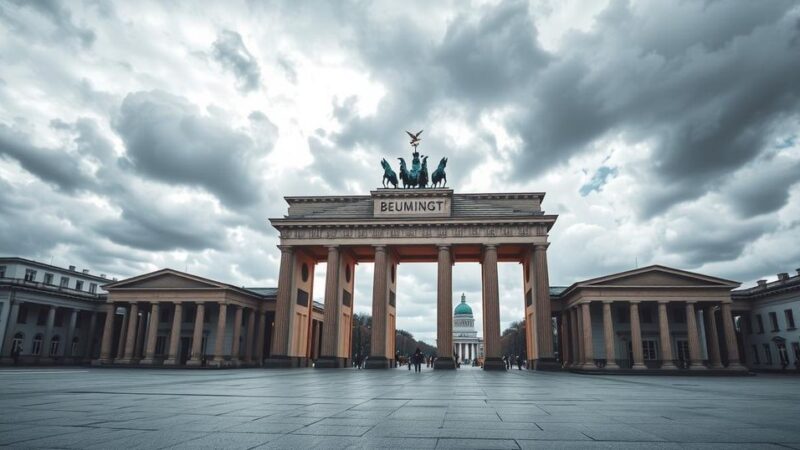Venezuelan comedians in exile, such as Estefanía León, are redefining humor through a lens of political critique and cultural identity. Against the backdrop of significant migration and a clampdown on free expression, their work illustrates the transformative power of comedy in both coping with adversity and maintaining a connection to their homeland. Through platforms like El Cuartico, these artists are bringing light to serious topics while fostering community among Venezuelans abroad.
In the face of political oppression and economic struggles, Venezuelan comedians exiled from their homeland are utilizing humor as a coping mechanism and a tool for social commentary. Estefanía León, a notable figure in this comedy renaissance, flourished amidst the backdrop of her country’s profound crises. The evolution of her comedy reflects the broader Venezuelan migration narrative, revealing a new voice rising from the ashes of strife. León’s journey began amidst the turmoil of 2017 Caracas, where her daily life was overshadowed by food shortages and an oppressive regime under President Nicolás Maduro. In a society grappling with hyperinflation and political unrest, León’s role as a satirical writer took on deeper implications. She found herself questioning the viability of humor in an environment stripped of joy. After migrating to Mexico City in 2018, León, along with her peers, revived their comedic spirit, leading to the establishment of El Cuartico, a platform that captures the essence of Venezuelan identity while addressing universal themes. El Cuartico has emerged as a prominent voice in Venezuelan comedy, streaming weekly sketches that resonate with audiences both within and outside Venezuela. With León at the helm, the group employs humor to navigate themes of migration and dictatorship, reflecting on shared experiences that transcend borders. Their sketches, marked by rapid-fire delivery and distinctly Venezuelan vernacular, strike a chord with a diverse audience while remaining rooted in their cultural heritage. The exile has led to the rise of several prominent Venezuelan comedians in various international venues, including George Harris and José Rafael Guzmán. Their endeavors showcase the adaptability and resilience of Venezuelan humor, which continues to thrive despite challenging circumstances. Even within Venezuela, the comedy scene persists, albeit under increasing scrutiny. Performers like Alejandra Otero strive to provide comedic relief, although they must tread carefully to avoid ire from the regime. In summary, this comedic boom reflects a larger narrative of resilience among Venezuelans in exile, highlighting the significance of humor as both a survival tool and a means of social criticism. Through their performances, these comedians strive not only to entertain but also to keep the spirit of their homeland alive. The context behind this emergence of comedy in the face of dictatorship stems from the mass migration leaving Venezuela, where nearly eight million citizens have sought refuge due to the political and economic crisis. Comedians who once thrived in their home country have had to adapt and cultivate their craft abroad, finding new audiences and forms of expression.
The article delves into the unique intersection of comedy and political resistance in Venezuela’s current socio-economic landscape. With a history of political instability and economic hardship, its citizens have increasingly turned to humor as a form of coping and expression. Comedians such as Estefanía León exemplify this trend, transitioning from creating satirical content in a repressive environment to gaining recognition on international platforms. The significance of comedy as a vehicle for socio-political critique is heightened, especially as many Venezuelans continue to navigate challenges posed by authoritarian governance and migration. The comedians’ ability to utilize their craft to reflect both their experiences and those of the Venezuelan diaspora underscores the vital role of humor in cultural identity and community resilience.
The resurgence of Venezuelan comedy, spearheaded by exiled comedians, serves as a testament to the power of humor in the struggle against oppression and adversity. By creating universal narratives grounded in their own experiences, they foster a connection with both Venezuelan and international audiences, enriching the cultural tapestry of comedy. In an environment fraught with difficulties, their commitment to using humor as a form of resistance highlights the enduring spirit of a displaced yet resilient people.
Original Source: www.nytimes.com






